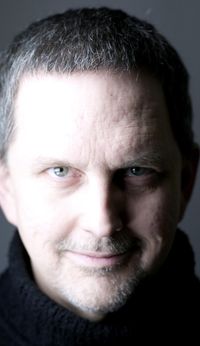
 |
 |
|
Vancouver Early Music Festival Sequentia: The Unknown 'Carmina Burana' Sung in Latin with English projections Sequentia
Benjamin Bagby, director,
voice & harp, Norbert Rodenkirchen, flute; Wolodymyr
Smishkewych, voice, organistrum, Date and Venue 9 August 2013, 8.00pm | UBC Reviewer Elizabeth Paterson |
||||||||||||||||||||||||||||||||
|
Any performance by Benjamin Bagby exhibits meticulous attention to detail, extensive research, hard labour, considerable thought and magic to bring it alive. All these qualities were in evidence to some degree on Friday evening. This Festival runs in tandem with the courses offered by the Early Music Festival Programme and some performances are essentially faculty concerts, and none the worse for that. Friday's event was more a student recital supported by faculty members. It was a pleasure to hear their voices and their playing. The students are highly accomplished musicians, some already with established professional careers. The programme was chosen chiefly from the 'Carmina Burana'. There were love songs for the young at heart and songs of money, power and corruption which speak directly to our modern age. Some songs had music written in the manuscript. In other cases, music has been reconstructed, as in the sorrowful 'Lament of Dido, Queen of Carthage.' A fascinating variety of styles of verse from lyric to dramatic and bitter to pragmatic were on display as well as a wide array of musical styles. Amongst them were the very sophisticated Ludus super Anticlaudianum, played by Norbert Rodenkirchen on flute, the superbly satirical 'O curas hominem' which delivers mordant criticism of Church through plainchant, the dramatic 'Olim sudor Herculis' performed by Bagby in his unique mix of declamation and song. Instrumental pieces were interspersed with the songs and the various changes rung on the number of singers and whether or not they were accompanied all added interest. Accompaniment was provided by an assortment of instruments, vielles, flute, harp and organistrum. The spoken word was a surprising and interesting divergence from music. Short maxims read aloud in Latin gave a tantalizing hint of the sounds of everyday life long ago. Helpful translations were projected onto a screen behind the performers. It would have been nice to have the original text projected as well, the diction not always being quite clear. Despite the interest of the individual numbers, there was a general homogeneity in the performances and a slightly austere, academic air which was never quite transcended. Magic perhaps can't be taught. . © 2013 Elizabeth Paterson |
||||||||||||||||||||||||||||||||||